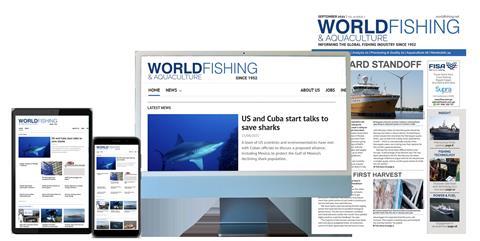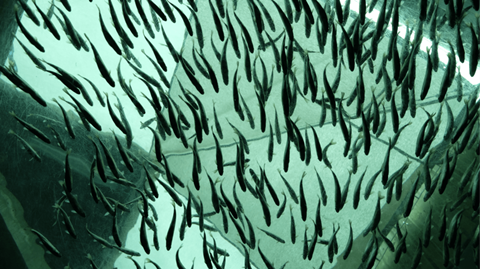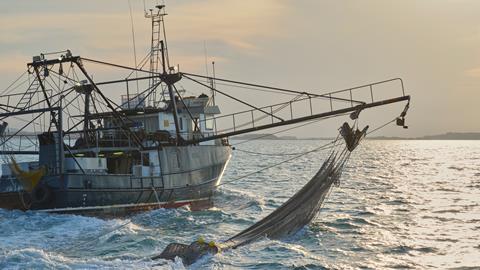- News
- Subscribe

Get full access to World Fishing & Aquaculture content
Including the digital magazine, full news archive, special reports, webinars and articles on innovations and current trends in the commercial fishing and aquaculture industries.
- Expert analysis and comment
- Unlimited access to in-depth articles and premium content
- Full access to all our online archive
Alternatively REGISTER for website access and sign up for email alerts
- Industry Database
- Events
Icelandic Fisheries Exhibition
Íslenska sjávarútvegssýningin
Fish Waste For Profit Conference



The largest commercial fishing exhibition in the North Stærsta kaupstefna um sjávarútveg á norðurslóðum Maximise return on investment from potentially discarded parts of the catch Visit the IceFish Website Visit the IceFish Website Visit the Fish Waste for Profit Website
- Special Reports
By-Product Solutions
Smart, Connected Seafood Processing
Land-Based Aquaculture Technology
Greener Fishing
January-February 2025 March-April 2025 July-August 2025 November-December 2025 



Cutting waste and maximising value Robotics, analytics software and other Industry 4.0 technologies are helping to scale-up productivity New production systems are escalating the industry’s contribution to global food security Fisheries are becoming increasingly responsible and sustainable thanks to new technologies and initiatives Read More Read More Read More Read More
Reviving Japan’s seas through environmental conservation

Fishermen in Japan are safeguarding blue carbon ecosystems such as seaweed beds to restore the environment and bring back marine life
The sea has served Japan as a cultural and economic resource for thousands of years. The Japanese have made heavy use of the ocean, harvesting a host of marine organisms from squid and octopus to tuna, salmon and abalone. However, in recent decades, the ocean has become a resource at risk with the onset of climate change, overfishing and other threats. These have resulted in declining catches, environmental changes and changes in species distribution, while an aging workforce and a shortage of successors in the fishing industry are drawing increasing concerns.
Tomokazu Kawabata, a set-net fisherman in Yamagawa, Ibusuki city, Kagoshima prefecture, and Shozo Kesamaru, who free dives for abalone offKaratsu city in Saga prefecture, are all too familiar with the problems facing Japan’s fishing industry. Based in southern Japan, both fishermen enjoy the ocean’s resources and have long been concerned by the changes they’ve seen.
“Sea temperatures have been rising gradually, and this has changed the distribution of marine species,” Kawabata told WF. “For example, over the past 10 years, fishermen in Hokkaido have been unable to catch autumn salmon, which return to the Hokkaido coast to spawn in the autumn or early winter. Meanwhile, Japanese yellowtail fishing grounds have changed dramatically, and Hokkaido, which previously registered next to no catches, is now seeing significant hauls. The problem is not that fishermen can’t catch what they used to catch. Rather, they are catching species that they have never caught before, and they have no culture or history of eating them, so they ship them elsewhere.”
“I’ve been free diving since I was 18 years old, and environmental changes off Saga prefecture used to be gradual,” said Kesamaru. “However, they are now happening more quickly. With the environment changing to this extent, and to ensure survival, fishermen need a framework to do what is appropriate for the environment. The balance of the ecosystem has been disrupted. We need to bring back and maintain it while protecting the ocean as best as we can.”
Continue this article…
Already subscribed? SIGN IN now

Register for a FREE one-month trial to continue this article
Want to read more before deciding on a subscription? It only takes a minute to sign up for a free account and you’ll get to enjoy:
- Weekly newsletters providing valuable news and information on the commercial fishing and aquaculture sector
- Full access to our news archive
- Live and archived webinars, podcasts and videos
- Articles on innovations and current trends in the commercial fishing industry
- Our extensive archive of data, research and intelligence
Get more free content sign up today
Ready to subscribe? Choose from one of our subscription packages for unlimited access!

